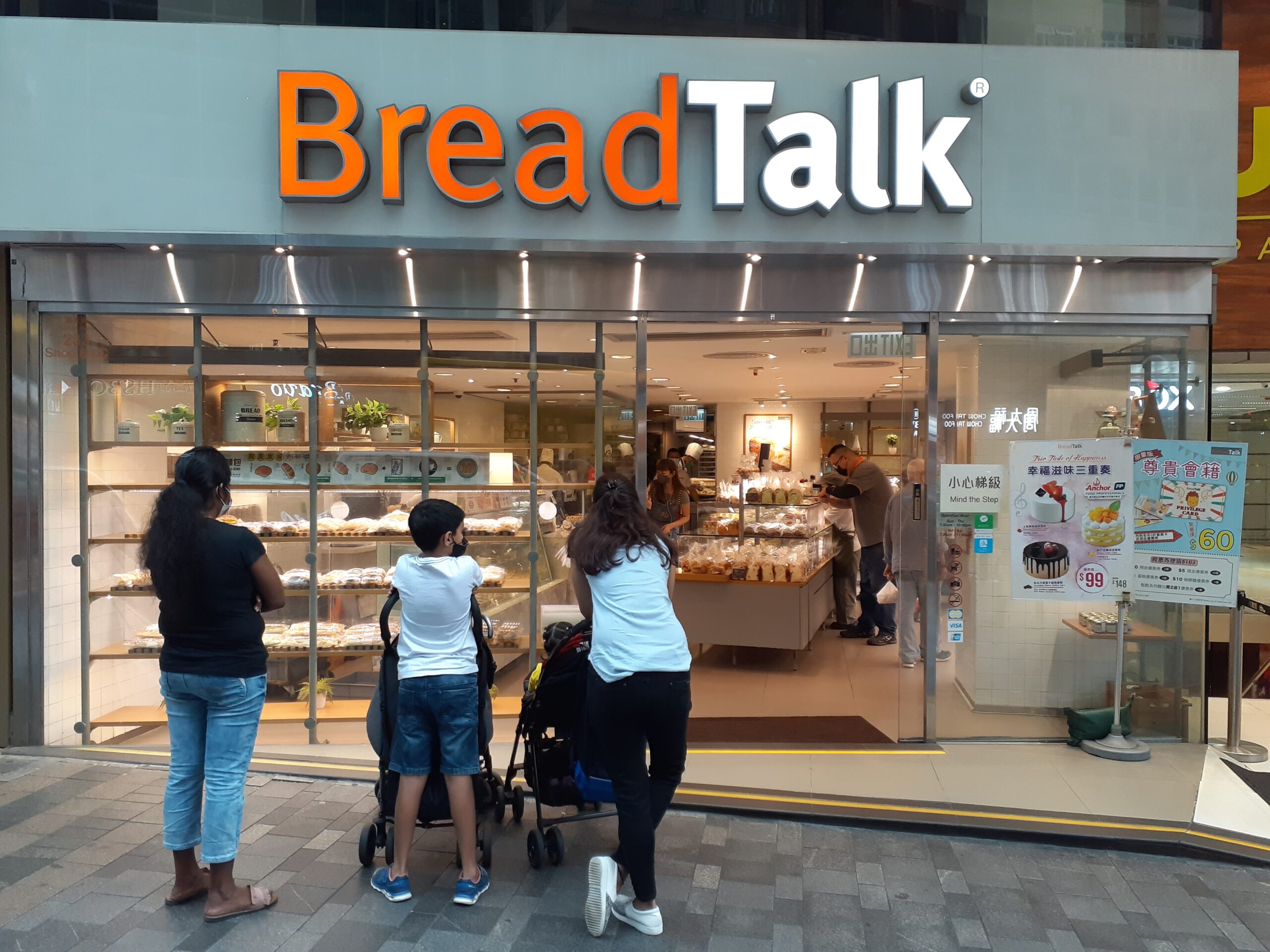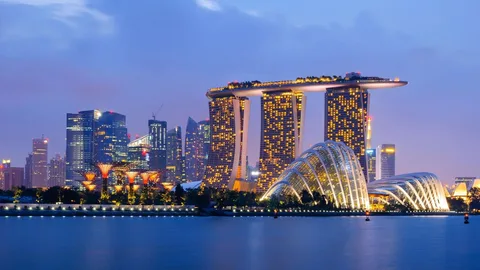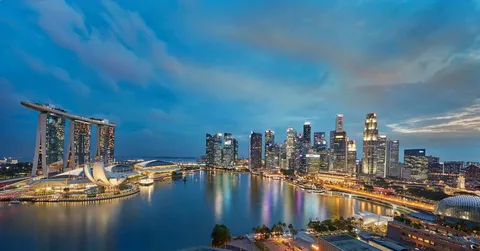Food
Vernacular Coffee Roasting Culture & Authentic Flavors

The term “vernacular coffee” represents far more than just another specialty coffee category. It embodies the authentic expression of local coffee culture, where traditional brewing methods meet contemporary artisan techniques. This concept celebrates the unique language of coffee that emerges from specific communities, regions, and cultural contexts.
Vernacular coffee brand philosophy centers on preserving indigenous coffee traditions while adapting them for modern palates. Unlike mass-produced commercial coffee, vernacular approaches emphasize storytelling, cultural heritage, and community connection. Each cup becomes a narrative vessel, carrying forward generations of brewing wisdom and regional flavor profiles.
The vernacular coffee meaning extends beyond mere consumption to encompass a holistic coffee experience. It represents coffee that speaks the language of its origin, whether through traditional Indonesian coffee beans preparation methods, Vietnamese coffee style brewing techniques, or Malaysian coffee flavors that reflect local spice influences. This authenticity creates deeper connections between drinkers and the coffee’s cultural roots.
Vernacular Coffee Roasters: Champions of Cultural Authenticity
Modern vernacular coffee roasters serve as cultural custodians, preserving traditional roasting techniques while incorporating contemporary quality standards. These artisan coffee professionals understand that each bean tells a story, and their role involves translating these narratives through careful roasting profiles and brewing methods.
Small batch coffee production allows vernacular coffee roasters to maintain quality control while honoring traditional methods. Hand crafted coffee approaches enable roasters to adjust profiles based on each batch’s unique characteristics, creating signature blends that reflect both technical expertise and cultural sensitivity.
The micro roastery movement has enabled many independent coffee brand entrepreneurs to establish vernacular coffee company operations that prioritize community engagement over mass market appeal. These locally roasted beans often feature tasting coffee profiles that reflect regional preferences and traditional flavor combinations.
Vernacular Coffee Shop: Creating Community Spaces
A vernacular coffee shop transcends the typical cafe experience by creating spaces that reflect local culture and community values. These neighborhood cafe establishments often feature rustic coffeehouse aesthetics that honor traditional coffee culture while providing modern comfort and convenience.
The modern coffeehouse concept, when applied to vernacular coffee shop design, incorporates elements that tell local stories. From locally sourced coffee displays to cultural artifacts that reflect the community’s heritage, these spaces become gathering points for meaningful coffee moments and social coffee spot interactions.
Vernacular coffee Singapore establishments exemplify how local coffee shop concepts can thrive in diverse urban environments. These spaces often blend traditional Southeast Asia coffee preparation methods with contemporary third wave cafe standards, creating unique cultural coffee experience opportunities for locals and visitors alike.
Vernacular Coffee Singapore: A Cultural Melting Pot
Singapore’s vernacular coffee culture represents a fascinating blend of traditional Asian coffee preparation methods and modern specialty coffee innovation. The island nation’s diverse cultural heritage creates unique opportunities for culturally inspired coffee experiences that reflect Chinese, Malay, Indian, and Western influences.
Local coffee roasters in Singapore have embraced the vernacular approach by incorporating traditional flavors and brewing methods into contemporary cafe Singapore operations. These artisan cafe experience locations often feature signature coffee drinks that reflect the multicultural nature of Singaporean society.
The third wave coffee movement in Singapore has found natural alignment with vernacular coffee principles, as both emphasize quality, origin transparency, and cultural storytelling. This convergence has created a thriving specialty cafe scene that celebrates both local traditions and international coffee standards.
Vernacular Coffee Beans: Origin Stories and Flavor Profiles
Understanding vernacular coffee beans requires appreciation for the complex relationships between terroir, processing methods, and cultural preferences. Single origin coffee selections often reflect the specific environmental conditions and traditional processing techniques that define regional coffee characters.
Arabica beans from different vernacular coffee regions develop distinct tasting notes based on local growing conditions and processing methods. Indonesian coffee beans might showcase earthy coffee notes and bold roast coffee characteristics, while Thai coffee style preparations often emphasize nutty coffee notes and balanced acidity coffee profiles.
The coffee flavor wheel becomes particularly relevant when exploring vernacular coffee beans, as traditional regional preferences often influence which flavor characteristics are emphasized during processing and roasting. Chocolatey coffee notes might be preferred in some cultures, while others gravitate toward floral coffee or fruity coffee expressions.
Specialty Coffee and the Third Wave Movement
The third wave coffee movement has provided a framework for understanding and appreciating vernacular coffee approaches. This movement’s emphasis on coffee as craft beverage aligns perfectly with vernacular coffee’s focus on cultural authenticity and traditional brewing methods.
Artisan coffee preparation techniques, such as pour over coffee, chemex brew, and v60 coffee methods, allow vernacular coffee roasters to showcase the unique characteristics of their culturally specific beans. These manual brew coffee approaches require skill and attention that reflects the careful, respectful attitude toward coffee that defines vernacular approaches.
Craft coffee preparation methods enable baristas to create barista-made coffee experiences that honor both traditional techniques and contemporary quality standards. The slow coffee movement particularly resonates with vernacular coffee philosophy, as both emphasize patience, mindfulness, and respect for the coffee preparation process.
Sustainable and Ethical Coffee Sourcing
Vernacular coffee companies typically prioritize sustainable coffee and ethical coffee sourcing practices that support local farming communities. Fair trade coffee and organic coffee certifications often align with vernacular coffee values, though many small-scale operations focus on direct trade coffee relationships that provide more direct support to farming communities.
Climate conscious coffee production has become increasingly important for vernacular coffee roasters, who often implement carbon-neutral coffee practices and minimal waste coffee operations. Recyclable coffee bags and eco-friendly coffee packaging reflect the environmental consciousness that often accompanies cultural authenticity values.
The bean to cup approach embraced by many vernacular coffee operations ensures complete control over quality and sustainability practices. This vertical integration allows companies to maintain ethical standards while preserving traditional processing methods that might be lost in larger commercial operations.
Traditional Brewing Methods and Cultural Rituals
Coffee brewing rituals vary significantly across cultures, and vernacular coffee celebrates these differences rather than standardizing them. Traditional brewing methods often reflect available materials, climate conditions, and cultural preferences that have developed over generations.
Vietnamese coffee style preparation, with its distinctive phin filter and condensed milk combination, represents one example of how vernacular coffee approaches honor specific cultural traditions. Similarly, Filipino coffee preparation methods often incorporate local ingredients and techniques that reflect indigenous knowledge systems.
These locally inspired flavors and preparation methods create authentic coffee brand experiences that cannot be replicated through mass production. The storytelling coffee brand approach allows consumers to connect with these traditions, creating deeper appreciation for cultural diversity within coffee culture.
Coffee Tasting and Flavor Development
Coffee cupping and professional tasting coffee profiles assessment play crucial roles in vernacular coffee development. Understanding regional taste profiles requires sensitivity to cultural preferences and traditional flavor combinations that might differ significantly from international standards.
Coffee tasting notes for vernacular coffees often include references to local ingredients, spices, or flavor combinations that reflect regional cuisine influences. This approach to tasting session organization helps preserve and communicate cultural knowledge through coffee experiences.
The coffee tasting session format adapted for vernacular coffee often includes cultural context education alongside flavor assessment. This educational component helps consumers understand the cultural significance of specific flavor characteristics and brewing methods.
Building Coffee Community and Culture
Community cafe concepts central to vernacular coffee shop operations emphasize connection over commercial transaction. These spaces often function as cultural centers where coffee serves as a medium for community building and cultural preservation.
The neighborhood roasters approach creates direct relationships between coffee producers and local consumers. This proximity enables immediate feedback, seasonal coffee offerings, and limited edition coffee releases that reflect community preferences and local ingredients.
Social coffee spot functionality extends beyond beverage service to include cultural programming, educational workshops, and community events that strengthen local connections. These activities help preserve and transmit cultural knowledge while building appreciation for vernacular coffee approaches.
Innovation Within Tradition
Modern vernacular coffee operations successfully balance tradition preservation with contemporary innovation. Creative coffee drinks that incorporate traditional flavors with modern presentation techniques exemplify this balanced approach.
Signature blends and house blend coffee development often reflect this innovation within tradition philosophy. Roasters might combine traditional regional beans using contemporary roasting techniques, creating unique coffee concepts that honor heritage while meeting modern quality expectations.
The bespoke cafe approach allows vernacular coffee shops to customize experiences based on individual customer preferences while maintaining cultural authenticity. This personalization creates memorable experiences that encourage repeat visits and community loyalty.
Future of Vernacular Coffee Culture
The growing appreciation for authentic coffee brand experiences suggests a bright future for vernacular coffee culture. As consumers increasingly seek meaningful coffee moments that connect them to cultural traditions, vernacular coffee operations are well-positioned to meet this demand.
Grounded coffee traditions provide stability and authenticity that cannot be easily replicated by larger commercial operations. This authenticity advantage, combined with growing consumer interest in cultural coffee experience opportunities, creates sustainable competitive advantages for vernacular coffee businesses.
The integration of modern technology with traditional methods enables vernacular coffee operations to scale while maintaining quality and cultural authenticity. Online platforms can share origin-focused coffee stories, while modern equipment can improve consistency without compromising traditional flavor profiles.
Conclusion
Vernacular coffee represents more than a market segment or business model—it embodies a philosophy that celebrates cultural diversity, community connection, and authentic expression through coffee. From specialty coffee roasting techniques to traditional brewing rituals, vernacular coffee creates bridges between past and present, local and global, traditional and innovative.
The success of vernacular coffee brand operations demonstrates growing consumer appetite for meaningful, culturally grounded coffee experiences. Whether through small batch coffee production, sustainable sourcing practices, or community-focused cafe operations, vernacular coffee continues evolving while maintaining its core commitment to cultural authenticity and community connection.
As the specialty coffee industry continues expanding, vernacular coffee approaches offer valuable lessons about the importance of cultural sensitivity, community engagement, and authentic storytelling. These principles ensure that coffee remains not just a beverage, but a medium for cultural expression, community building, and meaningful human connection.
Food
Yi Dian Dian Bubble Tea Singapore: Menu, Outlets & Try Drinks

Bubble tea in Singapore isn’t just a drink—it’s a lifestyle. Among the many brands popping up across the island, Yi Dian Dian Bubble Tea stands out for its authentic flavors, quality ingredients, and balanced sweetness that lives up to its name (“Yi Dian Dian” literally means “just a little bit”). Whether you’re a fan of brown sugar milk tea, tapioca pearls, or fruity blends, Yi Dian Dian has something for every taste bud.
What Makes Yi Dian Dian Bubble Tea Special?
Yi Dian Dian’s charm lies in simplicity. It doesn’t try to reinvent bubble tea but focuses on perfecting the basics—smooth tea, chewy pearls, and just the right amount of sugar. Customers love that it offers control over sweetness and ice levels, giving everyone a personalized experience. Every drink feels consistent, no matter which Yi Dian Dian outlet you visit in Singapore. The brand’s tapioca pearls are soft yet bouncy, never soggy or overly sweet. Their brown sugar milk series has become a cult favorite for its caramel aroma and creamy texture. Meanwhile, tea lovers swear by the golden oolong and classic milk tea, which hit the right balance between fragrance and flavor.
Yi Dian Dian Bubble Tea Menu
The Yi Dian Dian bubble tea menu is known for its wide range of tea bases, milk options, and fun toppings. Here’s what you can expect when browsing the Yi Dian Dian menu Singapore:
Signature Milk Teas
Classic Milk Tea – A smooth blend of black tea and creamy milk. Brown Sugar Milk Tea – Sweetened with rich brown sugar syrup and chewy pearls. Oolong Milk Tea – Fragrant and slightly roasted flavor that pairs well with milk foam. Taro Milk Tea – Sweet and earthy, perfect for dessert lovers.
Fruit Tea Series
Passion Fruit Green Tea – Refreshing with a tangy twist. Peach Oolong Tea – Fragrant oolong base with a gentle fruit note. Lemon Black Tea – Great for a citrusy punch on hot afternoons. Mango Green Tea – Tropical and light with natural sweetness.
Brown Sugar Series
Brown Sugar Pearl Milk – Thick, creamy, and filled with warm brown sugar pearls. Brown Sugar Matcha Latte – A Japanese twist with a caramelized touch. Brown Sugar Fresh Milk with Cream Foam – Rich and velvety, best served less sweet.
Milk Foam Teas
Golden Oolong Milk Foam Tea – Slightly floral tea topped with a salty-sweet foam. Black Tea Milk Foam – Balanced, smooth, and satisfying for milk tea purists.
Specialty & Recommended Drinks
The Yi Dian Dian recommended drinks include their Signature Brown Sugar Milk Tea, Golden Oolong Milk Foam, and Peach Oolong Fruit Tea. Each drink has a unique charm that caters to different moods—whether you’re craving something creamy, floral, or refreshing.
Yi Dian Dian Bubble Tea Price in Singapore
The Yi Dian Dian bubble tea price varies slightly by outlet, but most drinks range between $3.50 to $6.50 depending on size and toppings. Brown sugar milk teas and specialty drinks are usually at the higher end due to the premium ingredients. The Yi Dian Dian menu prices remain competitive, offering great value compared to other popular brands in Singapore’s bubble tea scene.
Yi Dian Dian Outlets and Store Locations
Yi Dian Dian has multiple outlets across Singapore, making it easy to grab your favorite drink wherever you are. Popular Yi Dian Dian branch locations include Yi Dian Dian Bugis Junction, Yi Dian Dian Tampines 1, Yi Dian Dian Nex Serangoon, Yi Dian Dian Chinatown Point, Yi Dian Dian Jurong Point, and Yi Dian Dian Northpoint City (Yishun). Each outlet maintains the same level of consistency and freshness. The Yi Dian Dian opening hours generally range from 11 AM to 10 PM, but timings can differ by location. If you’re unsure where to find one near you, simply search “Yi Dian Dian near me” on Google Maps or GrabFood to locate the closest store.
Yi Dian Dian Delivery and Online Orders
Craving bubble tea at home? Yi Dian Dian offers delivery through major food platforms like GrabFood, Foodpanda, and Deliveroo. Just type “Yi Dian Dian order online” or check their app listings. The Yi Dian Dian delivery menu includes their full range of drinks, so you won’t miss out on your favorite combinations. For takeaway lovers, Yi Dian Dian’s packaging is sturdy and spill-proof, making it ideal for quick office breaks or late-night cravings.
Yi Dian Dian Bubble Tea Calories
Wondering how many calories are in your cup? On average, a Yi Dian Dian bubble tea ranges from 220 to 450 calories, depending on size, toppings, and sugar level. The brown sugar series tends to be higher due to the syrup, while fruit teas and golden oolong options are lighter choices. For calorie-conscious drinkers, you can always go for less sugar and skip pearls or cream foam. Yi Dian Dian’s customizable menu makes it easy to adjust your drink without compromising taste.
Yi Dian Dian Signature and Recommended Drinks
Yi Dian Dian’s signature drink remains the Brown Sugar Pearl Milk Tea—a favorite for its soft pearls, smooth milk, and caramelized flavor. The Golden Oolong Milk Foam is another fan-favorite, offering a mix of sweet, salty, and creamy textures in one sip. Their matcha latte, made with high-quality Japanese matcha, has gained loyal fans for its earthy undertone and balanced sweetness. And if you’re after something refreshing, the Peach Oolong Tea is a top pick among fruit tea lovers.
Yi Dian Dian Franchise and Brand Presence
Yi Dian Dian started in Taiwan and quickly became one of Asia’s most recognizable bubble tea brands. With franchises spreading across countries, its presence in Singapore continues to grow. For entrepreneurs, Yi Dian Dian franchise opportunities are open in select regions, known for their strong branding and training support. Each franchise maintains strict quality control—tea leaves, pearls, and syrups are often imported directly from their main suppliers to keep the authentic taste consistent across Yi Dian Dian bubble tea outlets.
Yi Dian Dian Promotion and Loyalty Program
Yi Dian Dian often runs limited-time promotions such as 1-for-1 deals, discounts on specific drinks, or free toppings for loyalty members. Customers can sign up for the Yi Dian Dian loyalty card or use GrabPay Rewards to collect points for every purchase. Keep an eye on their social media for Yi Dian Dian bubble tea offers—especially during festive seasons like Chinese New Year and Mid-Autumn Festival when they release exclusive drink flavors.
Yi Dian Dian Bubble Tea Review
Yi Dian Dian bubble tea is often praised for its consistent taste, fresh pearls, and reliable service. Most reviewers note that it feels less artificial than some big-name competitors. The brand also scores high for its drink variety and customizable options, making it a go-to choice for daily bubble tea fans. The brown sugar series remains the highlight—rich but not overpowering. The fruit tea series, especially the Peach Oolong, provides a refreshing break from heavy milk-based drinks. Whether you’re ordering for dine-in, takeaway, or Yi Dian Dian bubble tea delivery, the quality stays intact.
Yi Dian Dian Singapore Menu Guide: Drinks You Should Try
If you’re new to Yi Dian Dian, start with these crowd favorites: Brown Sugar Pearl Milk Tea – Their signature drink for a reason. Golden Oolong Milk Foam Tea – Perfect for those who like balanced sweetness. Peach Oolong Fruit Tea – Refreshing and light. Matcha Latte – Great for green tea lovers. Classic Milk Tea with Pearls – A safe, satisfying choice anytime. Each of these drinks showcases what Yi Dian Dian does best—quality tea, creamy milk, and chewy pearls with a focus on balance.
Why Yi Dian Dian Bubble Tea Continues to Stay Popular
The bubble tea scene in Singapore is competitive, but Yi Dian Dian keeps winning hearts through its authenticity, consistent quality, and value for money. It’s not about gimmicks or over-the-top toppings—it’s about getting the fundamentals right every single time. From their brown sugar bubble tea to fruit tea series, Yi Dian Dian continues to serve up drinks that taste honest and comforting. That’s why whether you’re grabbing a quick cup or ordering online, Yi Dian Dian always feels like the right choice.
Image Caption (Alt Text): Yi Dian Dian Bubble Tea Singapore Menu and Signature Drinks
Food
Zion Road Big Prawn Noodle – Singapore’s Hawker Delight

If you’ve ever explored Singapore’s legendary hawker scene, you’ll know that some dishes earn a cult following not by flashy marketing, but through decades of perfecting a recipe. That’s exactly the case with Zion Road Big Prawn Noodle, a stall that’s carved out a permanent place in the hearts (and stomachs) of locals and tourists alike. Nestled inside the Zion Road Hawker Centre, this noodle stall is more than just a quick lunch spot – it’s a culinary institution.
Whether you’re a foodie hunting for the best prawn noodles in Singapore or simply wondering what all the fuss is about, this guide will walk you through the history, taste, and secrets of this famous hawker gem.
A Quick Introduction to Zion Road Hawker Centre
Before we dive into the prawn noodles themselves, let’s set the scene. The Zion Road Hawker Centre (also known as Zion Road Food Centre) is a compact but mighty collection of famous Zion Road food stalls. It’s one of those places where the aroma hits you the moment you step inside – a mix of smoky char kway teow, fragrant chicken rice, and, of course, the irresistible scent of prawn broth bubbling away.
Open from morning until late night (check the exact Zion Road hawker opening hours before you go), it’s a gathering place for everyone from office workers grabbing lunch to families enjoying weekend dinners.
The Legacy of Zion Road Big Prawn Mee
The stall has been dishing out steaming bowls of Zion Road Big Prawn Mee for decades. While Singapore boasts countless prawn noodle stalls, few have managed to achieve the level of fame and consistent quality this one enjoys.
The prawn mee soup here is renowned for its deep, sweet-savory broth – a slow-simmered concoction made from prawn heads, pork ribs, and secret seasonings. Locals swear it’s the best hawker prawn mee in the area, and the snaking queues outside the Zion Road famous hawker stall prove it.
What Makes the Broth So Special?
If you’re wondering why the Singapore big prawn soup here stands out, it comes down to the dedication to fresh ingredients and a time-intensive cooking process. The prawn heads are roasted before being simmered, unlocking a deeper umami. Combined with pork bones and a careful balance of spices, you get a broth that’s naturally sweet without overpowering saltiness.
It’s the kind of soup that makes you pause between bites just to savor the depth of flavor.
Types of Prawn Noodles You Can Try
At Zion Road Hawker Centre, the prawn noodle stall offers a variety of styles to suit different palates:
1. Big Prawn Mee Soup
The classic choice – springy yellow noodles swimming in a rich, amber-hued prawn broth. Topped with halved jumbo prawns, bean sprouts, and slices of pork.
2. Dry Big Prawn Mee
Same juicy prawns, but tossed in a flavorful soy-chili sauce mix, served with a small bowl of soup on the side. Perfect for those who like a little spice kick.
3. Prawn & Pork Rib Combo
A hearty bowl for the indecisive eater – you get the sweetness of prawns and the tender bite of pork ribs in one go.
Big Prawn Noodle Price – Is It Worth It?
One thing first-time visitors often check is the big prawn noodle price. Prices vary depending on portion size and prawn type, but expect to pay a little more than average hawker noodles. Considering the freshness of the prawns and the labor behind the broth, most would argue it’s worth every cent.
Best Time to Visit the Stall
The stall gets busy fast. If you want to skip the long wait, aim for a late morning visit before the lunch rush. Early evenings are also good, but keep in mind popular dishes can sell out quickly at famous Zion Road prawn noodle stalls.
Zion Road Hawker Must-Try Dishes Beyond Prawn Noodles
While Zion Road Big Prawn Noodle is the star attraction, the hawker centre is packed with other gems worth exploring. Your Zion Road food guide should include:
- Char Kway Teow – smoky, sweet, and packed with wok hei
- Satay – juicy skewers with peanut sauce
- Laksa – spicy coconut broth with thick rice noodles
Still, if you have only one stomach’s worth of space, most locals will tell you to stick with the prawn noodles first.
Big Prawn Noodle Review – What Foodies Say
Online big prawn noodle reviews are almost unanimous – this is one of the famous prawn noodle soups in Singapore you must try at least once. Many praise the broth’s balance and the perfectly cooked prawns. A few note that the queue can be long, but agree that the wait is justified.
Finding Zion Road Big Prawn Mee
The stall is located inside Zion Food Centre Singapore, right along Zion Road near River Valley. It’s easy to spot thanks to the queue – just follow the scent of prawn broth. If you’re searching “prawn noodles near me” while in the area, chances are this spot will pop up first.
Singapore Prawn Noodle Cultur
Prawn noodles are a quintessential Singaporean comfort food. Whether it’s a rainy afternoon or a casual weekend outing, the combination of flavorful soup and fresh seafood hits all the right notes. The Zion Road big prawn stall is a perfect example of why hawker culture here is worth preserving – it’s affordable, authentic, and made with pride.
Tips for First-Time Visitors
- Bring cash – most hawker stalls still don’t take cards
- Share a large bowl if you want to try other dishes too
- Don’t be afraid to ask for extra chili if you love heat
- Take a quick stroll along the nearby river after your meal to walk off the calories
Why Zion Road Big Prawn Noodle is a Must-Eat
It’s more than just a bowl of noodles – it’s a piece of Singapore’s culinary heritage. Between the rich broth, the fresh jumbo prawns, and the nostalgic hawker setting, you’re getting an experience that’s hard to replicate.
If you’re compiling a list of Zion Road hawker must-visit spots or planning where to eat prawn noodles in Singapore, put this one right at the top.
Final Thoughts
Zion Road Big Prawn Noodle isn’t just a meal – it’s a story of tradition, skill, and the unrelenting pursuit of flavor. From the bustling atmosphere of Zion Road Hawker Centre to the unforgettable taste of the broth, this is one culinary stop that truly lives up to the hype.
If you’re a local, consider it a reminder of why Singapore hawker food remains unmatched. If you’re a visitor, well, this might just be the bowl that makes you fall in love with the city’s street food scene.
Food
Discover BreadTalk Paya Lebar: Fresh Bakes, Flavors & More

BreadTalk Paya Lebar is one of the most popular bakery destinations in Singapore, and for good reason. Conveniently located in BreadTalk Paya Lebar Square near Paya Lebar MRT station, it offers a delightful mix of artisan buns, pastries, toast, cakes, and seasonal treats. Whether you’re grabbing a quick breakfast or searching for an afternoon snack, this BreadTalk branch has you covered.
BreadTalk Paya Lebar Location and Directions
Finding BreadTalk in Paya Lebar is a breeze. It’s situated in BreadTalk Paya Lebar Square at 60 Paya Lebar Road. For those using public transport, it’s right next to Paya Lebar MRT station, making it one of the easiest BreadTalk outlets to access in Singapore. If you’re wondering about the BreadTalk Paya Lebar Square map or how to get there, simply exit from the MRT and follow the signs towards Paya Lebar Square food court area.
What’s on the BreadTalk Paya Lebar Menu?
The BreadTalk Paya Lebar menu is brimming with mouthwatering choices. From their signature floss buns and char siew bao to moist sponge cakes and savory toast, every bite is crafted with care. BreadTalk cake Paya Lebar lovers will find classic favorites like Black Forest and Mango Mousse, while those craving something light can explore their variety of snacks and drinks.
BreadTalk Breakfast & Lunch at Paya Lebar
Looking for a quick morning bite or a hearty lunch? BreadTalk breakfast Paya Lebar options include soft buns, egg mayo sandwiches, and aromatic coffee. Lunch at BreadTalk Paya Lebar features grab-and-go savory buns, chicken curry puffs, and filling pastries. Ideal for busy office-goers and students around the area.
BreadTalk Paya Lebar Opening Hours and Contact
Wondering about BreadTalk Paya Lebar opening hours? This outlet generally opens at 10:00 AM and closes by 10:00 PM daily, though timings may vary slightly during holidays or BreadTalk promotions at Paya Lebar. For inquiries, BreadTalk Paya Lebar contact number is typically available via their main hotline or the BreadTalk Singapore official site.

Is BreadTalk Halal Certified at Paya Lebar?
BreadTalk Paya Lebar Square halal certified options are an important consideration for many. While BreadTalk Singapore continues to work on expanding its halal offerings, customers are advised to check in-store for the most updated halal certification status.
BreadTalk Buns, Cakes, and Toast at Paya Lebar
From their cult-favorite pork floss buns to sweet red bean pastries, the BreadTalk buns Paya Lebar range is unmatched. BreadTalk toast Paya Lebar lovers will appreciate the thick, buttery slices served fresh daily. And if you’re celebrating a birthday or event, you’ll find that BreadTalk cake Paya Lebar options strike the perfect balance between taste and price.
Seasonal Menus, Promotions, and Deals
BreadTalk seasonal menu Paya Lebar brings limited-time offerings, like mooncakes during Mid-Autumn or festive bread collections during Christmas and Lunar New Year. Don’t miss out on BreadTalk promotions Paya Lebar, often advertised in-store and online, including bundle deals, lunch sets, and buy-2-get-1-free offers.

BreadTalk Delivery and Online Orders
Can’t visit in person? BreadTalk delivery Paya Lebar is available through major food delivery platforms like GrabFood and Deliveroo. Customers can also place a BreadTalk online order Paya Lebar for cakes and pastries through their website. Expect prompt BreadTalk Paya Lebar delivery time and excellent packaging.
Customer Experience: BreadTalk Paya Lebar Reviews
BreadTalk Paya Lebar customer reviews consistently praise the bakery’s variety, freshness, and convenient location. While the BreadTalk queue Paya Lebar can get long during peak hours, efficient service ensures it moves quickly. Compared to outlets like BreadTalk Plaza Singapura, the Paya Lebar branch is often viewed as more accessible and better-stocked.
BreadTalk Paya Lebar Square Store Ambience
Located near the Paya Lebar Square food court, the BreadTalk shop Paya Lebar has a clean, modern aesthetic. Customers can either enjoy quick takeaway options or grab their items for home or office consumption. BreadTalk takeaway Paya Lebar is ideal for those in a hurry.
Is There a BreadTalk Franchise in Paya Lebar?
Yes, BreadTalk franchise Paya Lebar is part of the broader BreadTalk Singapore chain. Each franchise maintains high-quality standards, ensuring customers at BreadTalk Paya Lebar Square store receive the same taste and freshness the brand is known for.
Popular Choices and Must-Try Items
Not sure what to get? Try the Cheese Sausage Bun, the Original Pork Floss Bun, or the Salted Egg Lava Croissant. For drinks, BreadTalk drinks Paya Lebar includes refreshing iced tea, coffee, and seasonal beverages. Their pastries are perfect for a mid-day pick-me-up.
BreadTalk Paya Lebar Price Range
BreadTalk Paya Lebar price range is wallet-friendly. Buns start from just $1.60, while cakes and specialty items may go up to $20+. With such a broad range, you can always find something to suit your appetite and budget.

BreadTalk vs Competitors in Paya Lebar
Compared to nearby bakeries in Paya Lebar Square food court, BreadTalk stands out due to its consistency, flavor innovations, and promotional deals. While others may offer cheaper items, BreadTalk bakery Paya Lebar delivers value through quality and trust.
Nearby Attractions After Your Visit
After visiting BreadTalk near Paya Lebar MRT, why not explore nearby shopping malls like PLQ Mall or SingPost Centre? The entire area is a hotspot for food, fashion, and entertainment.
Final Thoughts on BreadTalk in Paya Lebar
BreadTalk Paya Lebar continues to impress with its diverse menu, friendly service, and strategic location near Paya Lebar MRT. Whether you’re craving a quick bun, a celebratory cake, or simply a good cup of coffee, this branch never disappoints. It’s no wonder BreadTalk Singapore Paya Lebar has become a beloved stop for locals and tourists alike.
In a competitive food landscape, the BreadTalk Paya Lebar branch offers an experience that goes beyond bakery staples—it’s a taste of innovation, tradition, and convenience all rolled into one. If you haven’t visited yet, you’re missing out on one of the best bakery gems in the East.
-
Blog4 months ago
Wedding day horror: Groom falls to death at VOCO Orchard Hotel on Wedding Day
-

 Technology3 months ago
Technology3 months agoEdTech in Singapore: 150+ Companies Driving $180M Digital Learning Revolution
-

 Education6 months ago
Education6 months agoSingapore JC Ranking: A Complete Guide for Students
-

 Food2 months ago
Food2 months agoYi Dian Dian Bubble Tea Singapore: Menu, Outlets & Try Drinks
-

 Blog6 months ago
Blog6 months agoBest of SG with Singapore Rediscover Voucher
-

 Business6 months ago
Business6 months agoWhat to Expect During PSLE Marking Days 2023
-

 Digital Marketing3 months ago
Digital Marketing3 months agoHow to Run Effective Xiaohongshu Advertising Campaigns
-

 Digital Marketing3 months ago
Digital Marketing3 months agoWhy Xiaohongshu Ads Are a Must for Reaching Chinese Consumers




